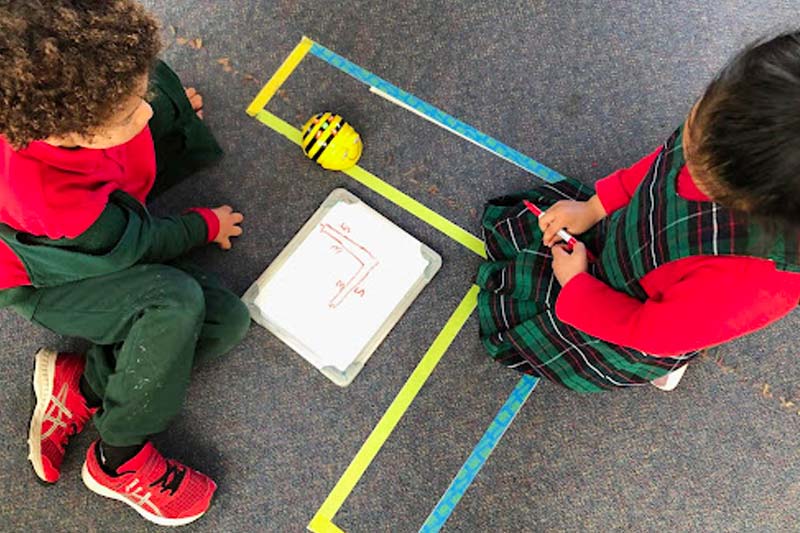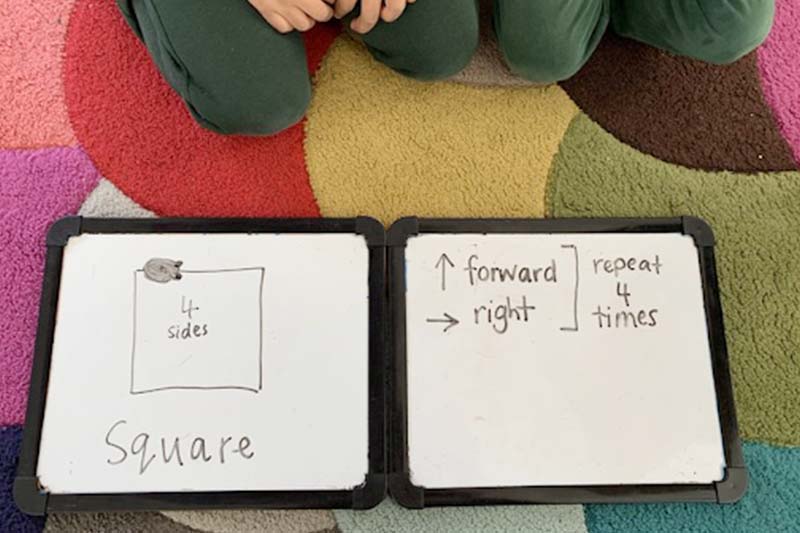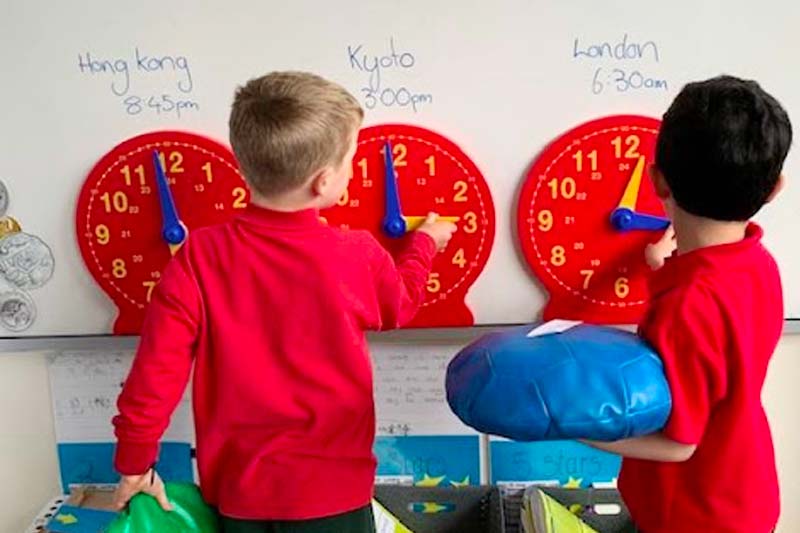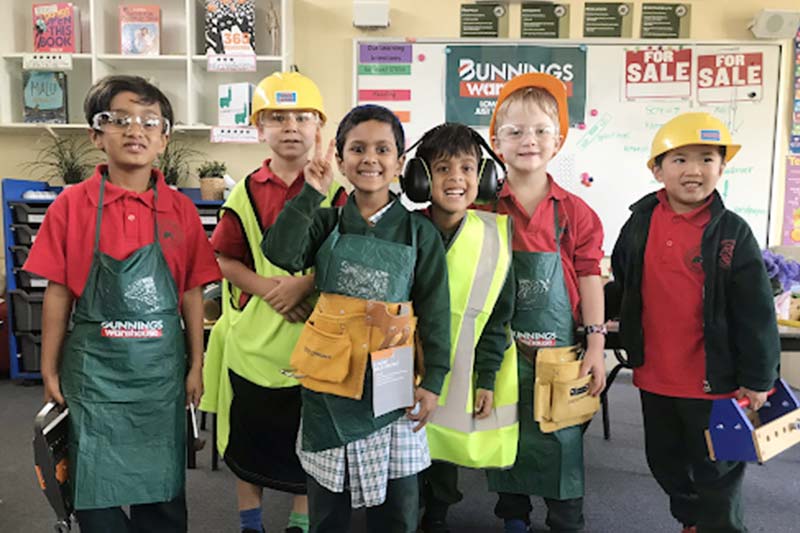Discovery Learning is a program that provides opportunities for children to learn naturally through play. Student interest drives the investigations, which teachers connect to the curriculum, reinforcing and supporting students to engage more deeply in literacy, numeracy and science concepts . A developmentally appropriate transition from kinder to school, Discovery Learning has an aim of fostering collaboration, accentuating student voice and cultivating creativity, encouraging students to ask questions and explore solutions. When we do this, children learn not only by watching, but by doing. The result: children not only consume resources and knowledge, but also create them.
“Each time one prematurely teaches a child something they could have discovered themselves, that child is kept from inventing it and consequently from understanding it completely.” - Piaget
Some examples of Discovery Learning:
These children are reading recipes and applying their knowledge of measurement and counting while playing in the mud kitchen. Following this Discovery Learning session, these children had a writing lesson in which they wrote their own mud kitchen recipes. These recipes were published for their classroom library so they could go back and read them and also share with their families.
Students showed an interest in learning to code on the iPads. First, we sequenced the story The Three Little Pigs together as a class, then in Discovery Learning students recreated the story using the app Scratch Junior. They needed to use code to animate the characters. Following this, we introduced the Beebot robots. Students worked collaboratively to code the robots to move around the shapes. They counted how many steps and used directional language (left, right, forward). This connected to their next mathematics lesson, during which they identified the number of sides on 2-Dimensional shapes.


Dramatic play is a common feature in Discovery Learning, however the type of play is always determined by the students and their interests. Students have had their own vet clinics and hospitals, airports, cafes, Australia Post and even Bunnings! Through these experiences, they learn about money (buying and selling products), measurement (weighing parcels at the ‘post office’), time (departure and arrival times at the airport and appointment times at the vet), writing (menus at the cafe), speaking and listening (interaction skills) and many more!

